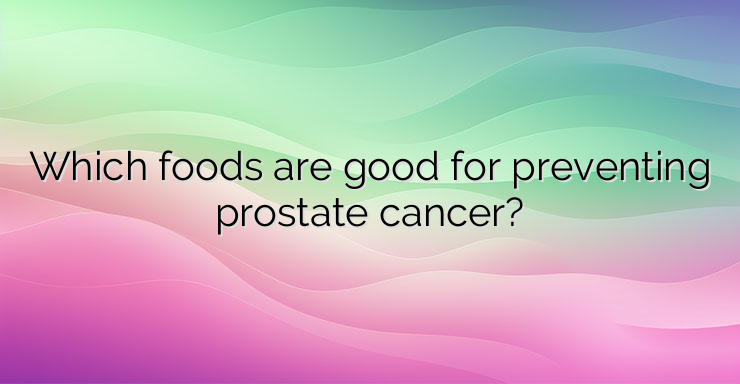Although it is not possible to completely reduce the chance of developing prostate cancer, there are some useful steps that can be taken to reduce this risk. Coffee intake Coffee intake is associated with a reduced risk of prostate cancer. A 2014 analysis of clinical trials concluded that drinking 4 to 5 cups of coffee each day may reduce the overall likelihood of developing prostate cancer. In addition, coffee intake also reduces the risk of developing a deadly form of prostate cancer and high-grade prostate cancer. A second meta-analysis from 2014 found that the risk of a deadly form of prostate cancer dropped by about 11 percent when drinking 3 cups of coffee. These findings are supported by a more recent review of studies from 2021. Scientists found that higher coffee consumption was associated with a lower risk of prostate cancer, with a significant trend towards a reduced risk of this type of cancer with each additional cup of coffee per day. This describes a dose-response relationship between prostate cancer and coffee, meaning that the effect on prostate cancer increases or decreases with the amount of coffee a man consumes. However, these effects may not apply to someone who only drinks coffee occasionally. However, it should be noted that high doses of caffeine can cause side effects, such as stomach upset, rapid heart rate and sleep problems. The Food and Drug Administration recommends not exceeding 400 milligrams (mg) of caffeine per day, which is equivalent to 4 to 5 cups of brewed coffee. The way the coffee is made can also be a factor. A 2015 study looking at coffee made with a filter coffee machine and home brewed coffee. Men who drink brewed coffee appear to have a lower risk of prostate cancer than men who drink coffee prepared differently or no coffee at all. The substances cafestol and kahweol have cancer-fighting abilities. Researchers believe these chemicals are captured when the coffee passes through a paper filter. Brewed coffee may allow these cancer-fighting chemicals to remain in the drink. Limiting fat intake Research from 2014 notes that there may be a link between saturated fat and animal fat and an increased risk of prostate cancer. Apart from meat, animal fats are found in lard, butter and cheese. Some other sources of saturated fat include cakes or pastries, candy, and many types of packaged or fast food. Whenever possible, replacing saturated and animal fats with vegetable fats is recommended. It is useful to replace:Olive oil to be used instead of butter; Candy should be replaced with fruit; Replace packaged foods with fresh vegetables; Instead of cheese, more nuts or seeds should be consumed. In addition, overcooked meat produces carcinogens. Bibliography: 1. American Cancer Society. Can prostate cancer be prevented? 2. Fraser GE, et al. (2020). Tomato consumption and intake of lycopene as predictors of the incidence of prostate cancer: The Adventist Health Study-2 3. National Center for Biotechnology Information (NCBI). Guo Y, et al. (2017). Green tea and the risk of prostate cancer: A systematic review and meta-analysis 4. Perez-Cornago A, et al. (2017). Fruit and vegetable intake and prostate cancer risk in the European Prospective Investigation into Cancer and Nutrition 5. Healthline. How to Lower Your Risk of Prostate Cancer


Leave a Reply